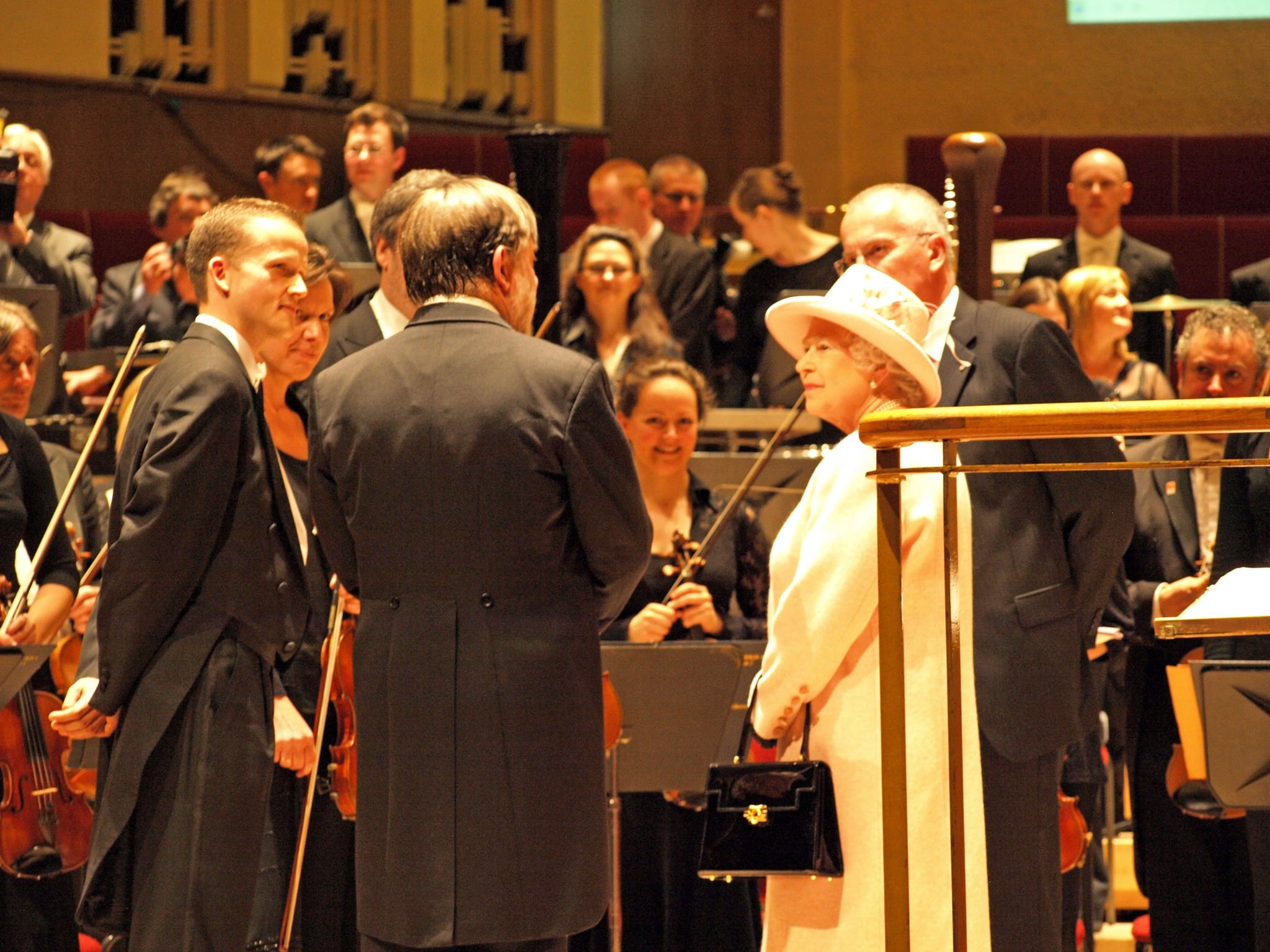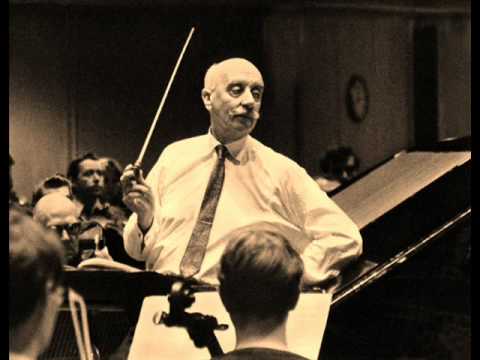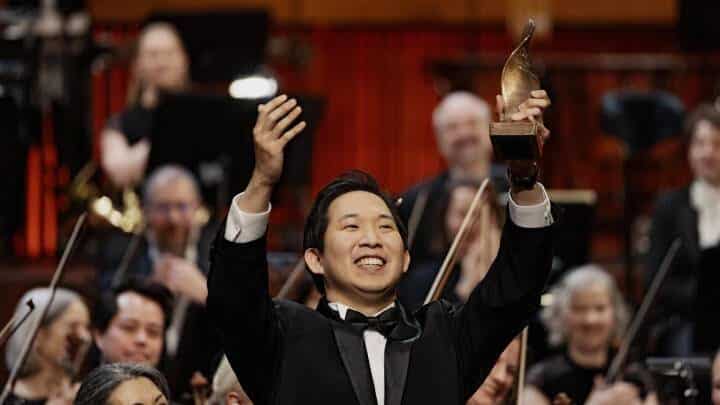Does an opera house need a Social Impact Consultant?
mainThis communication comes from Seattle Opera:
SEATTLE—When you think of the song, “Summertime,” perhaps you hear the elegant Ella Fitzgerald—or the earthy Janis Joplin—singing in your mind. But, while many great covers exist, there’s nothing like experiencing the song where “fish are jumpin’ and the cotton is high,” as Gershwin first wrote it: for the powerful voice of an opera singer. This August, come experience the origin of songs such as “Summertime,” and “I Loves You, Porgy” when Seattle Opera presents The Gershwins’ Porgy and Bess.
“Not only is the music in Porgy and Bess iconic, but this opera offers a rare and beautiful moment to see so many People of Color onstage,” said ChrisTiana ObeySumner, Social Impact Consultant for Seattle Opera. “As audience members, Porgy is an opportunity for us to celebrate the Black American experience, and to wrestle with aspects of America’s complicated racial history.”
Through lobby displays, program articles, and blog pieces, Seattle Opera will center Black narratives as it provides historical and cultural context for Porgy. Prior to the August performances, all are encouraged to attend Breaking Glass: Hyperlinking Opera & Issues, a free public forum on July 28 that will tackle issues of diversity, equity, and representation in a conversation led by arts leaders of color.







The inconvenient irony: Gershwin was a New York Jew.
Another inconvenience: the opera is not “The Gershwins’ Porgy and Bess.” That is a licensing product of the Gershwin estate, and rights protection turned obscene.
Too true.
A New York Jew?! Oh my god. How ironic. And inconvenient.
Excuse me, but are you guys all Americans? I’m Dutch and we left all this navel-staring agonizing aboiut race behind long ago. It’s not an issue. I just found out that Simon Estes is black. I always thought he shoe-polished his face before singing the Dutchman or Klingsor. Get a life. People are people and that’s bad enough as it is.
And a wonderful composer whose music sings “what Depression?”. I’ve loved Gershwin since my teens and have read everything – or just about – ever written about him. An absolute hero.
I actually feel sorry for these people, living in a bubble of abstractions and empty gestures, divorced from practical realities and context. And it bears repeating: The “people of color” thing is as offensive (but not for the reasons some will be inclined to think) as it is sad.
Then for what reasons is it offensive? I’m intrigued.
You need to do some maturing before you understand any of this. And not be so much in thrall to your PC masters.
I’m curious too, about both the “reasons some people will be inclined to think” and about the actual (?) reasons. Would you be willing to explain?
I’ve had enough of this already. No Porgy & Bess for me tonight. I’m putting on Treemonisha. Black people performing an opera about blacks, written by a black man. I should be on safe ground there.
Not so fast, Mr. Groen! Black man composed it but only after having been mentored and tutored from the ground up by a white Jew, or, as the new American governing “base” might have it, simply Jew.
Ah, so Joplin wasn’t really black then. I stand corrected.
By the way, Dietrich, I think you may be someone with a bit of common sense. Proud to know you, Sir!
He was black but his blackness may have been irretrievably corrupted by his teacher. Determination of this may require a specialist. Maybe Seattle would know…
Thank you Robt.
I’ll take “Maple Leaf Rag” myself.
https://www.youtube.com/watch?v=pMAtL7n_-rc
Absolutely marvelous!!
This is what George and Ira Gershwin would have said about this rubbish!!
https://www.youtube.com/watch?v=RSnqNh2cbdE
What a load of PC twaddle.
Is “Social Impact Consultant” the latest iteration of the now ubiquitous phony HR jobs of “Diversity Consultant”/”Diversity Director”?
And that loaded term “people of color”? Isn’t everyone some color? Ah…they only mean colors they want to see that are now deemed PC.
Are “people of color” the same as “colored people”?
Strangely:no.
It’s all a predictable make-work scheme. Surely you’ve woken up to this fact!!!??
They should at least be truthful about it. Call the position: VicePresident for Woke Virtue Signaling
https://twitter.com/bbccomedy/status/1010189882503950336?ref_src=twsrc%5Etfw%7Ctwcamp%5Etweetembed%7Ctwterm%5E1010189882503950336&ref_url=https%3A%2F%2Fhotair.com%2Farchives%2F2018%2F06%2F25%2Fullman-woke-will-eat%2F
Bloody brilliant!!! And those many millions of us with a SENSE OF HUMOR have a good old belly laugh at these tragics who’ll soon be wearing jackboots if people don’t start to take them much more seriously.
I had acquaintances who attended a Porgy and Bess performance several years ago having vaguely known the plot and heard “Summertime,” but otherwise not knowing anything about it. They walked out at the first intermission because they found it “racist.” I asked them why, and all they could point to was the dialect. Sad that more and more people are so desperate to prove something about themselves that they’d cast aside all context, history, and critical thinking just to be able to say that they walked out on something.
(And I’m one who regularly wrestles with the more culturally conservative commenters here and thank that most anti-“PC” crusaders are full of it!)
Whether these Seattle initiatives are worthwhile will depend on their quality and context. So I won’t pass judgment. But their existence speaks to the unnecessary nerviness that folks have today on this topic and the extraordinary efforts that some people feel compelled to take to prove their bona fides.
On a lighter note, I do always get a chuckle out of the title — apparently now imposed on all productions by the Gershwin estate — “The Gershwins’ Porgy and Bess.” God forbid you leave the composers out of the title.
One is put in mind of some movie credits, which sometimes seem to be along the lines of, “Steven Spielberg presents, a Steven Spielberg film, Steven Spielberg’s Jurassic Park, directed by Steven Spielberg.”
Wasn’t the specific title “The Gershwin’s Porgy and Bess” used to describe a special, cut-down version which was presented on Broadway a few years ago?
https://www.nytimes.com/2012/01/13/theater/reviews/audra-mcdonald-in-the-gershwins-porgy-and-bess-review.html
Yes. And I always wondered what the estate of DuBose Heyward had to say about this. Perhaps it sold out.
Me too. Ira Gershwin’s contribution as lyricist was relatively light on this occasion; Dubose Hayward wrote Summertime, My Man’s Gone now and many others that required the hand of a poet.
It was a first time effort but in my opinion helped raise the bar for George even before he started composing. I agree with Stephen Sondheim that these are among the best lyrics ever written for opera.
The first dramatization of the play and the opera’s “book,” both based on Hayward’s novel, were by Hayward and his wife Dorothy.
Seattle Opera’s choice to call it “The Gershwins’ Porgy & Bess” is a head-scratcher because it’s the same co-production from the same creative team as Glimmerglass, which mounted it last summer as “Porgy & Bess.”
I thought the trademarked title “The Gershwins’…” was intended to distinguish abridged musical theater adaptations – like Trevor Nunn’s in 2006 and American Repertory Theater’s 2011 revision with book by Suzan-Lori Parks – from the original full-length opera. Seattle’s website says this “Porgy” is “unabridged.” The same production is coming here to Fort Worth next season as “Porgy & Bess,” so the decision to bill it with the extra mouthful must have been Seattle’s.
On another note…the Seattle Symphony has a job opening for a Senior Manager of Creative Projects & Community Engagement. The ad says: ” Extensive knowledge of symphonic repertoire and experience in community engagement and social justice required.”
I wonder just how many people have both symphonic and social justice experience?
“Social justice” itself being a loaded phrase that has nothing to do with simple “justice” per se, but a particular conception of “justice” flowing from left-wing political assumptions and rationales.
Between ‘social justice’ and ‘merit’, the choice is easy. Or should be.
All of it low resolution ideology. Leave us all the hell alone.
If you click on the link of ChrisTiana ObeySumner’s name, it takes you to an interview. Here’s a little part of it:
I would like to see Seattle Opera make a more explicit invitation to PoC communities, and more implicitly make the opera a place where everyone feels welcome. Sometimes when people don’t see themselves in a space, they worry: “Am I going to be the only Black person there?” “Will people stare at me?” “Am I going to feel comfortable?” Or, for my friends who have disabilities—“Will there be a space for my wheelchair?” “Will I be able to make it back from intermission in time?” “Will there be strobe lights that will affect my epilepsy?” What I’ve been brought in to do—and what I’m honored to do—is to help identify and break down some of these barriers, both real and perceived.
It might sound like a load of PC twaddle, but as somebody who has at times been in the position of what is sometimes called “the other” (the one fat person in the room, or the one non-white person, or the one gay person), and been sometimes uncomfortable because of it and sometimes not, this actually makes sense to me.
I’ve been in a roomful of friendly people at a party, having a lovely time, and someone says “so Bruce — what are you?” and others within earshot turn around and go “yes, do tell, I’d been wondering.” I hadn’t been thinking about it, but suddenly I notice that I’m the only non-white person in the room and I’ve just found out that people — some people, anyway — have been wondering “what I am.”
Is that an uncomfortable experience?
Let me guess. Being the only non-white person in the room and faced with the panicky question ‘what are you?’ you allayed their fears and said ‘Hello. I’m Bruce. Nice to meet you.’ Right?
Well, that’s an idea …
But what if they speed-dial their parents who then summon the police? Then the rest, too easy to imagine.
(a) These were people I already knew. They weren’t scared of me (or what I might be), nor I of them. They were just curious. It was an interesting shift of perspective to experience, that was all. It could have been uncomfortable.
(b) I have a whole procedure that I use to answer questions like that. If we’re in a musical context, I say I’m a flute player. If we’re in the hospital, I say I’m a PT assistant. Sometimes that’s actually the question they were asking, so that’s the kind of answer they were looking for. Well and good. I may explain that I play in the symphony, or the difference between a physical therapist and an assistant, if they’re curious.
Sometimes they reply “I meant, where are you from?” (Sometimes that’s the original question.) I reply “Seattle” since that’s true. If there’s a further “no, I meant…” question, then I add that I was born in Wisconsin, which is also true. (We moved to Seattle when I was 2; I don’t remember Wisconsin.) If they still want to know more, I’ll explain that my parents were in Wisconsin for grad school, having moved from the West Indies after they got married.
Sometimes I’ll follow up with a friendly “and where are you from?” 🙂
When in weird company, as here, try the Rev Gary Davis approach
https://www.youtube.com/watch?v=972Dx71AtFA
Maybe someone who does not feel comfortable somewhere should not be there. For myself, I avoid places where I feel that I do not belong (and frankly, I don’t give a damn about it).
There are places where I have felt uncomfortable. There are places where I am quite sure I will feel uncomfortable. I avoid these places.
I do not expect to feel comfortable everywhere, and I do not want to impose my presence to people who make me feel uncomfortable.
Similar children play best.
If you’re quite sure you will feel uncomfortable among certain people, does it make a difference whether they want you to feel comfortable? Honest question. I’m finding it interesting to try to see my way into Seattle Opera’s point of view here.
I can imagine a few scenarios where I’m the “new” or “different” person (none of which may reflect your, or my, experience):
• You go somewhere and people look at you with hostility, someone asks why you’re there/ asks to see your ticket/ asks you to leave/ something along those lines. Pretty hard to mistake.
• You go somewhere and everyone ignores you. They’re all very friendly with each other but no one introduces themselves to you. Hard to tell if they actively don’t want you there but are too polite to say so, or just couldn’t care less if you never come back. (This was actually a friend of mine’s experience when she moved to a new town and was looking for a church to go to.)
• You go somewhere and people make kind of a big deal about you, to the point where it seems like everyone is lining up to meet the new person. You might start to wonder what makes you so interesting to everybody.
Depending on the person, I could easily imagine someone feeling comfortable or uncomfortable in any of those situations, and wanting or not wanting to return. Some people might thrive on creating a frisson, some people might like being ignored, some people might enjoy being the center of attention.
I can sort of imagine Seattle Opera saying to itself “Hmm, we have X percentage of black people in our city, but almost none of them ever come to the opera. I wonder if we’ve been making them feel unwelcome somehow?” and trying to come up with a way to make it clear that non-white people actually are welcome (as opposed to tolerated).
^ meant to mention in there somewhere that sometimes people’s special efforts to make a visitor feel welcome can actually make them uncomfortable.
Christ, what complicated lives you lead! Why, in the cradle of modern capitalism, can’t Seattle Opera say: You got the money? You’re welcome. You haven’t got the money? Come back when you find it.and then you’ll be welcome. Do they expect black people to soil the seats, or write graffiti in the lavatory? If that is the case then very soon there’ll be more black people on the stage than in the stalls. For I can tell you that, in the world of opera, black singers have arrived in large numbers and they’re here to stay. I have hundreds of operas on DVD and video in my collection and there aren’t many that don’t feature a black singer in an important role. And not just black, Korean, Japanese, Chinese, you name it. Time for you worriers about race to catch up with what is already happening in the art itself! Life’s too short!.
LOL. It’s just interesting to think about, for some of us anyway.
P.S. Life is not too short to spend time on things you enjoy 🙂
‘Similar children play best’…..is this some ancient Alabaman proverb?
It comes from a fable by La Fontaine.
Didn’t know La Fontaine was from Alabama lol
Huh…?
I imagine just about everyone feels a little bit of trepidation when they attend their first opera, concert or theatre performance. And it takes a while to “learn” the etiquette rules about how to be an audience member. Reassuring people they are welcome and trying to make them feel comfortable seems very sensible (otherwise you will eventually find you have no audience).
I don’t really see that race has anything particularly to do with this nervousness, but since the US seems to have a problem with race, then it seems sensible to try to reassure on grounds of race as well as everything else.
It all sounds so artificial – I am sure we all feel that. It’s like a very fake friendship.
If I can come back to why the work is now called “The Gershwins’ Porgy and Bess”, this is a requirement of the rights holders, the Gershwin Estate, so that they can do their best to extend the copyright in every element of the work including the music, as far as possible even though George Gershwin died in 1937. So in countries whose copyright expires 50 years after the death of the composer, the estate claims that all the music was written jointly by George and his brother Ira, who did not die until 1983. This means that a non-vocal version of say ‘Summertime’ would still be copyright until 2033 in a country with the 50-year copyright life rather than having become public domain in 1987. Actually, the matter may be legally more complicated than I have stated, but the name “The Gershwins’ Porgy and Bess” is a requirement of the Gershwin Estate to extend copyright as far as possible.
Interesting. The small type on such billing always restates the original arrangement, with all parties named.
Another, or complementary explanation to be checked out, is that “The Gershwins” prefix is intended to throw the Haywards under the bus in order to parry attacks from certain black critics who claim that P & B is defamatory to their race in various ways, with support from certain white critics. The 2011 abridgement/partial re-orchestration/recitative removal and — well I hesitate, having seen only bits and pieces — this Thing has been presented in part as a cleaned-up version of a work the owners no longer to wish to defend in full. Alterations in the text include changes such as “and your mammy’s good-looking” to “and your mother’s good-looking”! This is now the sole Authorized version for theaters, far as I know. It can still be presented as opera in an opera house in un-eviscerated form.
This ill-conceived attitude toward the opera has a long an complex history. Much of it took root from the vandalized versions permitted by the estate in the 1940s and 1950s; then comes the more ideological angle against what we might call today “cultural appropriation” as inimical to the development of American black culture — any of you who own “The Crisis of the Negro Intellectual” (1967) will find Harold Cruse training his heavy artillery at P & B.
I imagined that the great 1976 Houston Grand Opera revival by Sherwin Goldman would have put paid to all this but it’s back, at least to the extent of the more cowardly presenters running for cover. I’m coming to understand that it will never entirely go away, that there are even deeper reasons that can be called into the contest, inappropriate as these might be.
Takeaway: these questionings of the presentability of P & B should be taken seriously and contested wherever they pop up. In Europe the opera is revered. I believe that if any single made-in-America musical work is worth defending it’s this one.